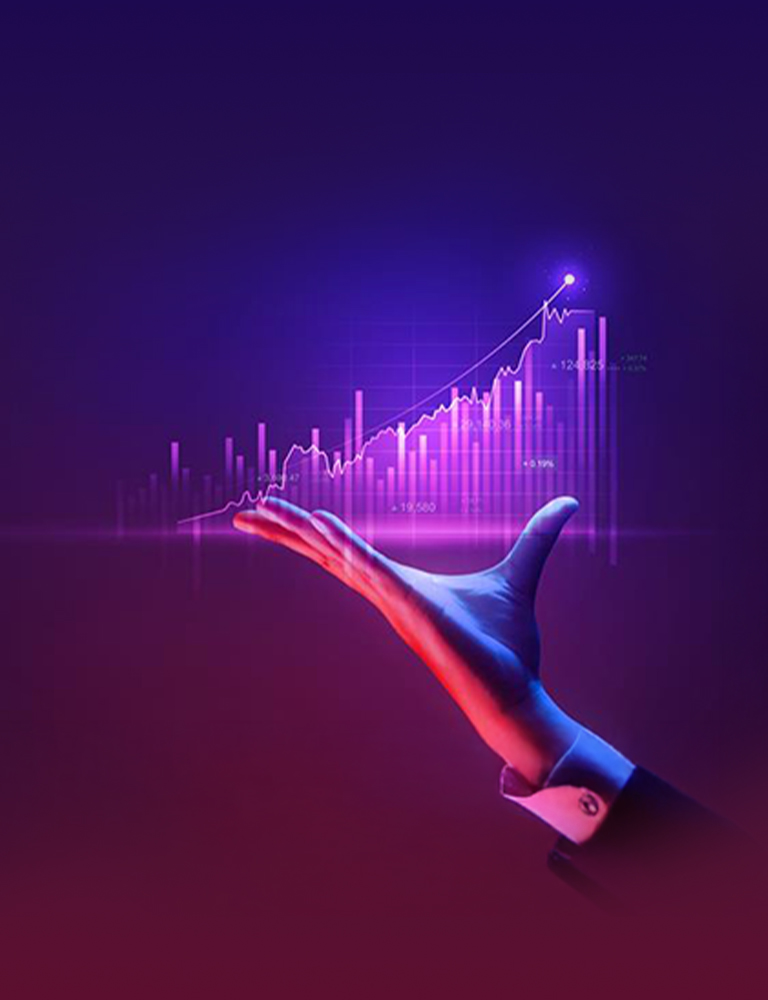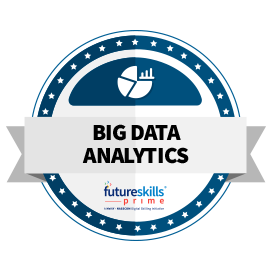Course Provider

What will you learn in this Data Analytics Course?
- In the Master’s in Data Analytics program, you will develop the ability to analyze large datasets and derive actionable insights for decision-making. You’ll start with foundational tools like Excel, SQL, and Python for data analysis, moving into advanced statistical techniques for business intelligence.
- The course will cover data visualization using Power BI or Tableau, enabling you to present insights effectively. You'll also explore concepts like data wrangling, cleansing, and pre-processing to ensure the quality of datasets.
- In addition, the curriculum includes case studies from various industries such as finance, healthcare, and marketing, where data analytics plays a crucial role. By the end of the course, you will have hands-on experience in handling real-world datasets and developing dashboards that communicate key metrics.
- The program prepares you to work as a data analyst, business analyst, or consultant, helping companies make data-driven decisions.
Master’s in Data Analytics
-
 Skill Type
Emerging Tech
Skill Type
Emerging Tech -
 Domain
Big Data Analytics
Domain
Big Data Analytics -
 Course Category
Deepskilling Course
Course Category
Deepskilling Course -
 Certificate Earned Joint Co-Branded Participation Certificate
Certificate Earned Joint Co-Branded Participation Certificate -
 Nasscom Assessment Coming Soon
Nasscom Assessment Coming Soon -
 Course Covered under GoI Incentive
No
Course Covered under GoI Incentive
No -
-
 Course Price
INR 32,000
Course Price
INR 32,000 -
 Course Duration
100 Hours
Course Duration
100 Hours
-
Why should you take this Data Analytics Course?
- A Master’s in Data Analytics is invaluable in today’s data-driven world, where businesses rely on data to make strategic decisions.
- This course equips you with the skills to turn raw data into actionable insights, a highly sought-after capability in sectors like finance, healthcare, retail, and technology. With increasing data production, companies need professionals who can handle, analyze, and visualize this information to optimize operations and drive growth.
- The program not only offers technical knowledge in tools like Python, SQL, and Power BI but also hones your ability to communicate findings effectively to stakeholders. As demand for data analysts continues to grow, this degree opens a wide array of high-paying job opportunities.
- Whether you aim to work as a data analyst, business analyst, or consultant, mastering data analytics can position you as a crucial asset to any organization, helping them make data-driven decisions.
Who should take this Data Analytics Course?
- This course is ideal for professionals and graduates in business, finance, marketing, or IT looking to enhance their decision-making skills through data.
- Anyone interested in leveraging data-driven insights for business optimization and aspiring to become a data analyst or business analyst should enroll.
Curriculum
- The Master’s in Data Analytics program is designed to provide a comprehensive understanding of data-driven decision-making.
- The curriculum starts with foundational courses like Statistics for Data Analysis, covering probability, hypothesis testing, and regression. You will also study Database Management and SQL to manage and query structured datasets efficiently.
- The course then dives into Python for Data Analysis, where you will learn data manipulation using libraries like Pandas and NumPy. Data Visualization with tools like Power BI or Tableau is another critical module, enabling you to create interactive dashboards and graphical representations of data.
- You’ll also study Advanced Excel for data analysis and business modeling, focusing on pivot tables, VBA scripting, and advanced functions. Predictive Analytics and Machine Learning Basics introduce regression, classification, and clustering techniques to forecast trends and behaviors.
- Another key component is Big Data Analytics, where you’ll explore tools like Hadoop and Spark for processing large datasets.
- The curriculum also includes a Capstone Project, where you apply your knowledge to solve a real-world business problem using analytics.
Tools you will learn in this Data Analytics Course
You will master tools like –
- Python (Pandas, NumPy)
- SQL for database management
- Excel for advanced data manipulation
- Power BI and Tableau for data visualization
- Hadoop and Spark for big data analytics.
- Additionally, you’ll use Jupyter Notebooks for interactive coding and analysis.
FAQs
A background in mathematics, statistics, or computer science is helpful, but our programs provide foundational courses, making them accessible to beginners with strong analytical skills and a willingness to learn.
Most Master’s programs take 6 months to complete, depending on your pace, the course structure, and whether you're studying part-time or full-time
Graduates can pursue roles such as Data Analyst, Data Scientist, Machine Learning Engineer, AI Engineer, Business Analyst, and Consultant across various industries like finance, healthcare, e-commerce, and tech.
No programming experience is not needed for these courses.
Yes, this program includes hands-on projects and capstone assignments, allowing you to apply learned skills to real-world datasets and industry-specific problems.
A background in mathematics, statistics, or computer science is helpful, but our programs provide foundational courses, making them accessible to beginners with strong analytical skills and a willingness to learn.
Most Master’s programs take 6 months to complete, depending on your pace, the course structure, and whether you're studying part-time or full-time
Graduates can pursue roles such as Data Analyst, Data Scientist, Machine Learning Engineer, AI Engineer, Business Analyst, and Consultant across various industries like finance, healthcare, e-commerce, and tech.
No programming experience is not needed for these courses.
Yes, this program includes hands-on projects and capstone assignments, allowing you to apply learned skills to real-world datasets and industry-specific problems."



